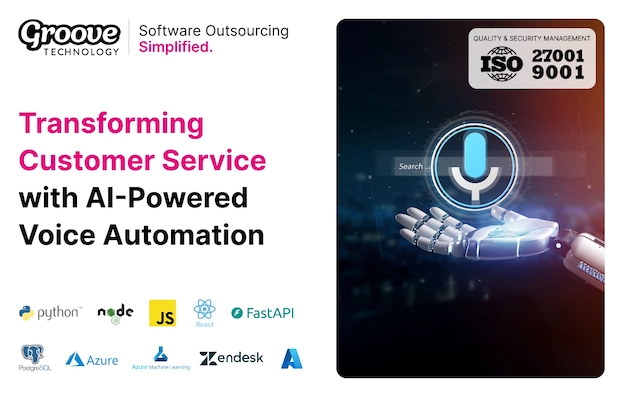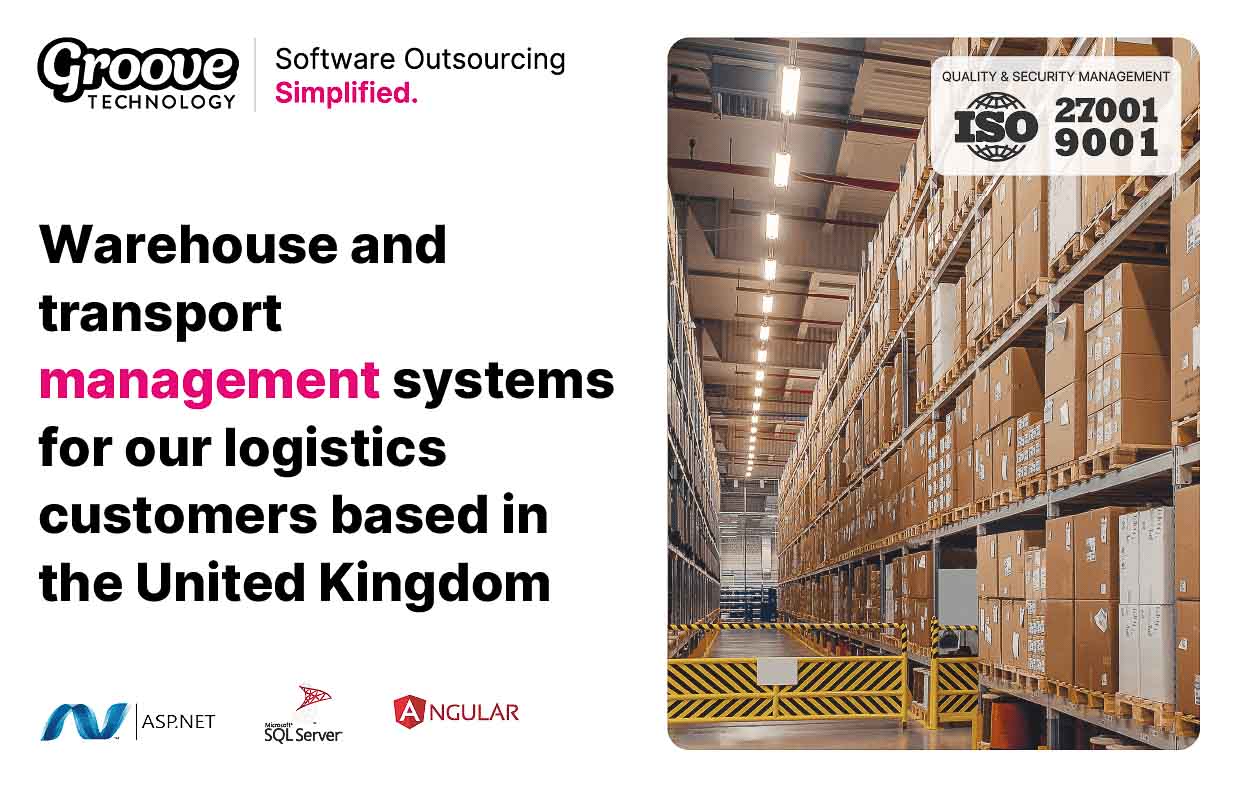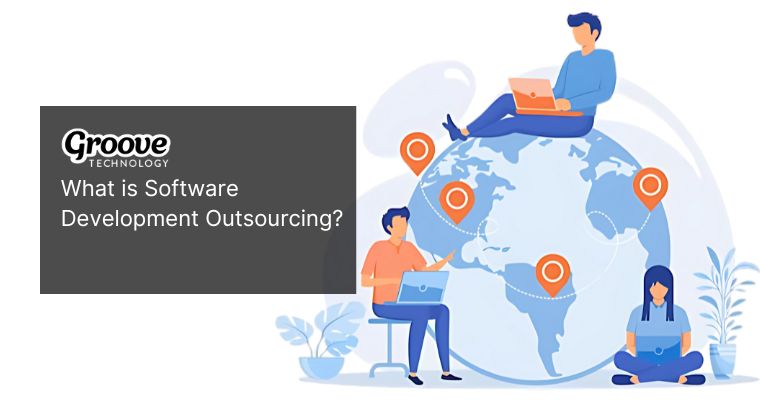SMARTER SOFTWARE DEVELOPMENT OUTSOURCING TO FOCUS ON YOUR BUSINESS
Outsource your software development project to Groove Technology, so your in-house team is equipped with the right talent and ensures business continuity.
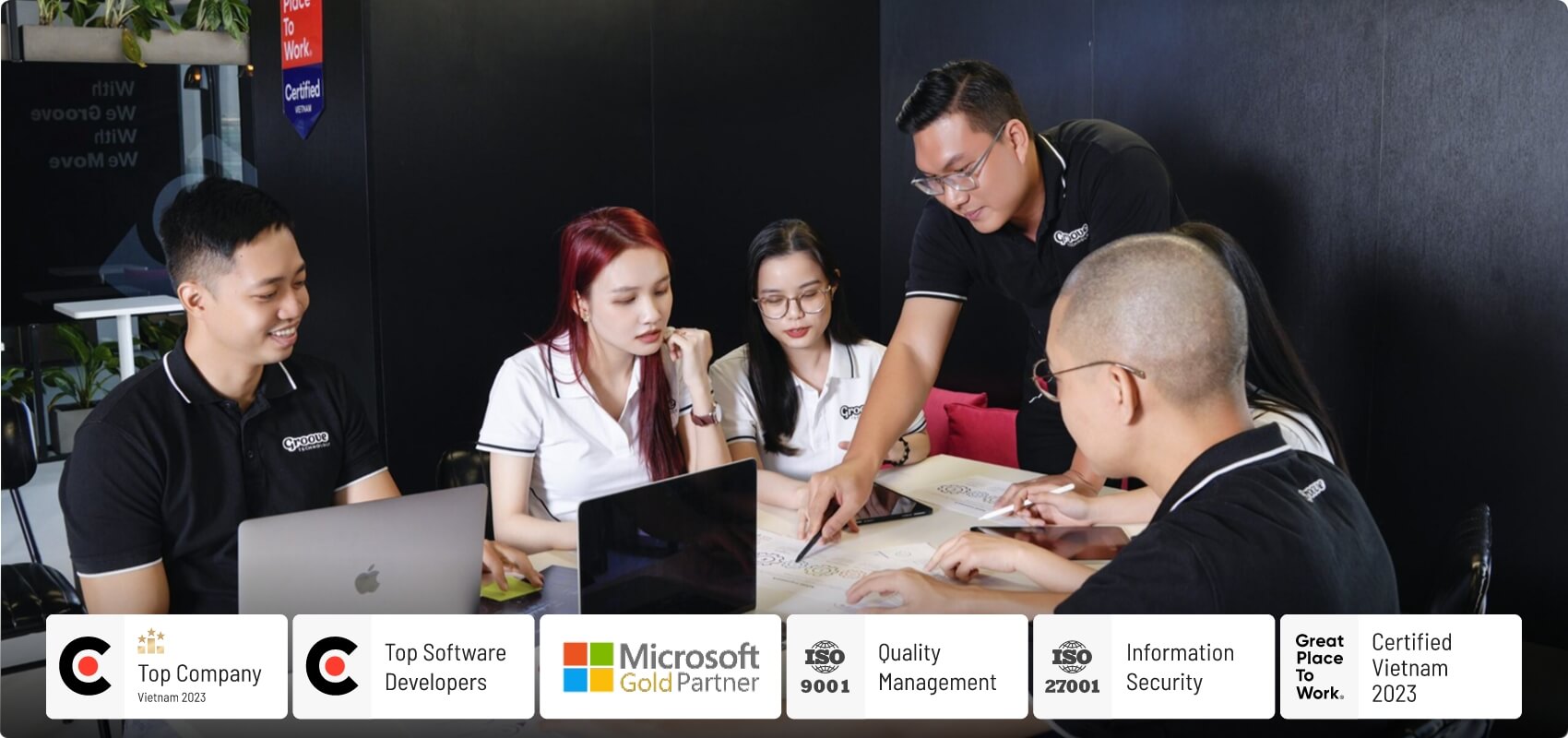

KEY THINGS TO KNOW ABOUT SOFTWARE DEVELOPMENT OUTSOURCING
Outsourcing software development allows companies to access global talent, reduce operational costs, and accelerate delivery — all while staying focused on core business goals.
What is a Software Development Outsourcing?
Software development outsourcing is the practice of hiring a third party (often an external organization or individual located in another country) to handle software development tasks instead of doing them in-house. Software development delegation involves engaging external specialists to handle specific technical operations, such as application creation, system maintenance, performance evaluation, and quality verification.
This approach helps reduce costs and improve scalability, allowing businesses to avoid recruitment overhead, minimize infrastructure expenses, and easily scale their teams in response to changing project demands.
SCALABLE TECH SOLUTIONS FOR BETTER PERFORMANCE
This approach helps reduce costs and improve scalability, allowing businesses to avoid recruitment overhead, minimize infrastructure expenses, and easily scale their teams in response to changing project demands.
Dedicated Team
Experience seamless integration with our fully outsourced team, sharing project risks and quality responsibility for collaborative success.
Your PM
Groove DEV
Extended Team
Advance your team capacity with extra talent who will help you accomplish your software development outsourcing projects efficiently.
Groove Dev
Your Team
WHAT ARE THE ADVANTAGES OF OUTSOURCING AN EXPERT SOFTWARE DEVELOPMENT OUTSOURCING TEAM?
Outsourcing to an experienced partner like Groove Technology allows you to accelerate development, reduce overhead, and access skilled talent — all while staying focused on your core business.


Outsourcing helps businesses lower costs for recruiting, development, and management. Companies avoid expenses like employee benefits, retirement contributions, and other overheads associated with in-house teams.
Outsourcing software development service connects companies with a diverse range of skilled professionals, providing expertise that may be unavailable locally and matching specific project needs.
Outsourcing allows companies to focus on their core operations while external teams handle non-essential tasks. This model also enables easy scaling of development resources to accommodate fluctuating project demands.
Compared to in-house hiring, outsourcing simplifies the process of sourcing and replacing staff, bypassing the complexities of severance packages and long-term contracts.
Outsourcing provides immediate access to specialized expertise (e.g., machine learning, data engineering, cloud migration) that would otherwise require significant investment in upskilling internal teams.
Outsourcing companies often have established quality assurance processes and offer fresh perspectives, which enhance product quality and help reduce technical debt.
With access to specialized expertise and the ability to work across time zones, outsourcing accelerates development timelines, enabling companies to deliver products more quickly and stay competitive.
What’s The Difference Between
STAFF AUGMENTATION vs DEDICATED TEAM?
























































































































































































































































































































































































































































































































































































































































































































































































































































































































































































































































































































































































































































































































































































































































































































































































































































































































































































































































































































































































































































































































































































































































































































































































































































































































































































































































































































































































































































































































































































































































































































































































































ABOUT GROOVE TECHNOLOGY
We ensure high-performance software and long-term partnerships for mutual success. Success for our customers is success for Groove Technology.
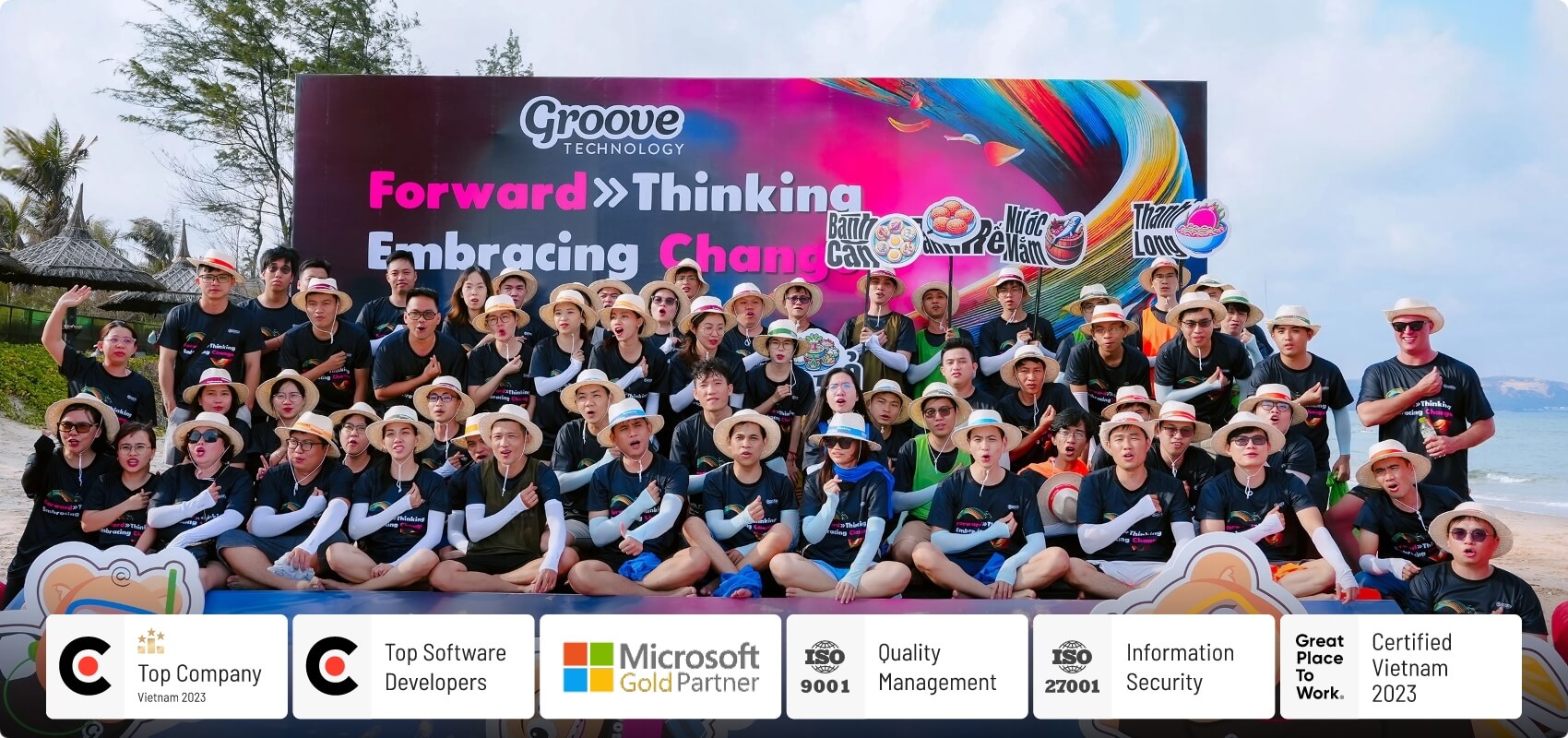

9 years of consistent growth and delivery excellence
Staff Augmentation and Dedicated Team
Skilled technology professionals
Completed projects
Customer retention rate
PORTFOLIO
Explore how we’ve helped clients scale efficiently with our Software Development Outsourcing services.
WHAT OUR CUSTOMERS SAY
OUR PROCESS
We focus on flexibility and adaptability to fit different customer needs.


Firstly, we'll identify your needs and evaluate the most suitable tools such as JavaScript and Node.Js. This will also involve outlining the overall structure of your project.
In this phase, we'll detail the development timeline and allocate tasks to the right personnel. Selection of software developers and other team members will be driven by their abilities, credentials, and relevance to your business objectives.
During this stage, the product will be crafted in line with your requirements. Regular updates on our progress will be provided to keep you involved in the process.
Irrespective of the project nature, thorough testing will be conducted to identify and rectify any flaws. This is a critical step in ensuring the high quality of the finished product.
Upon completion of all checks and assessments of the product and its functions, we will determine its readiness for launch.
We support you throughout the software development outsourcing life cycle: project handover, backup services, future integrations, and minimized maintenance.
WHY CHOOSE GROOVE TECHNOLOGY?
At Groove Technology, we don’t just provide talent — we deliver solutions tailored to your success. Here’s why businesses trust us:
Easy On-boarding
Whether you’re using Agile, Scrum, Kanban, or any other framework, our process is designed to mesh perfectly with your existing practices.
Our software engineers proactively listen, ensuring all questions are clarified, bridging any gaps between expectations and outcomes.
Let’s discuss more today!Transparent Cost Management
We ensure financial transparency through detailed cost breakdowns and performance incentives, providing clear understanding of your investment.
All costs are finalised upfront, with flexibility to adjust for scaling needs.
Quality Assurance
Our software developers are not only fully certified to meet industry standards but are also selected through a rigorous recruitment process, ensuring a blend of high technical proficiency and positive attitude.
We commit to long-term partnerships, which drives our ongoing training and people development initiatives, sustaining and enhancing the quality of our resources.
Let’s hear from our customers.OUR TECHNOLOGY STACKS
We leverage the latest technologies to deliver world-class solutions including:












































































































































































































FAQs ABOUT SOFTWARE DEVELOPMENT OUTSOURCING
Yes, we offer a tailored cost estimate based on your project specifics. Our transparent pricing ensures you receive a detailed breakdown without hidden charges. Contact our team for an accurate quote.
Our efficient onboarding process allows developers to integrate into your team within 1-2 weeks, ensuring minimal delays.
No. Our experts come fully equipped and are proficient in industry-standard tools and methodologies, ready to contribute immediately.
Yes, we take care of all administrative aspects, including payroll, leave, and benefits. This allows you to focus entirely on project delivery.
Our multi-step evaluation includes technical skill assessments, behavioural interviews, and cultural fit analysis. This ensures we provide the best match for your requirements.
Absolutely. Our flexible engagement model allows you to adjust terms for long-term collaboration based on your evolving needs.
Yes, you can transition an augmented developer to a full-time role seamlessly if they prove integral to your project.





